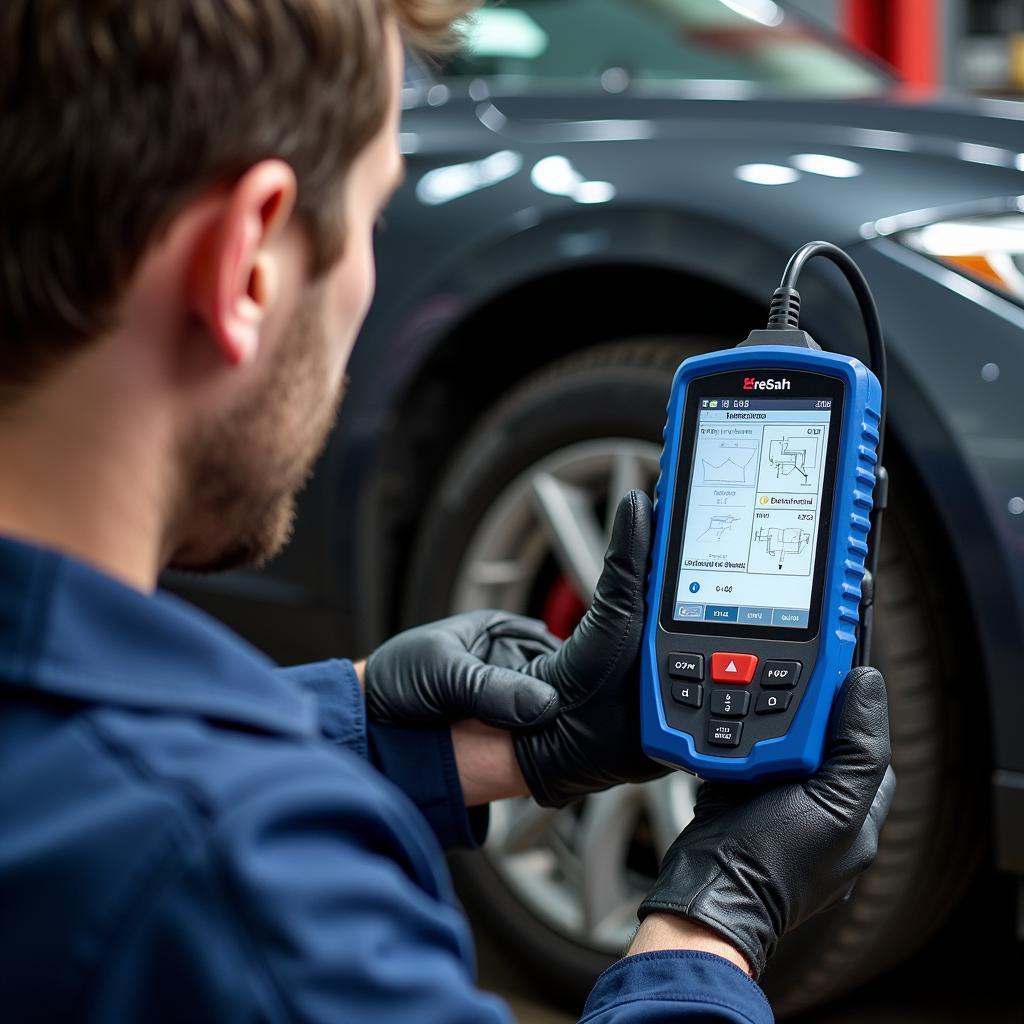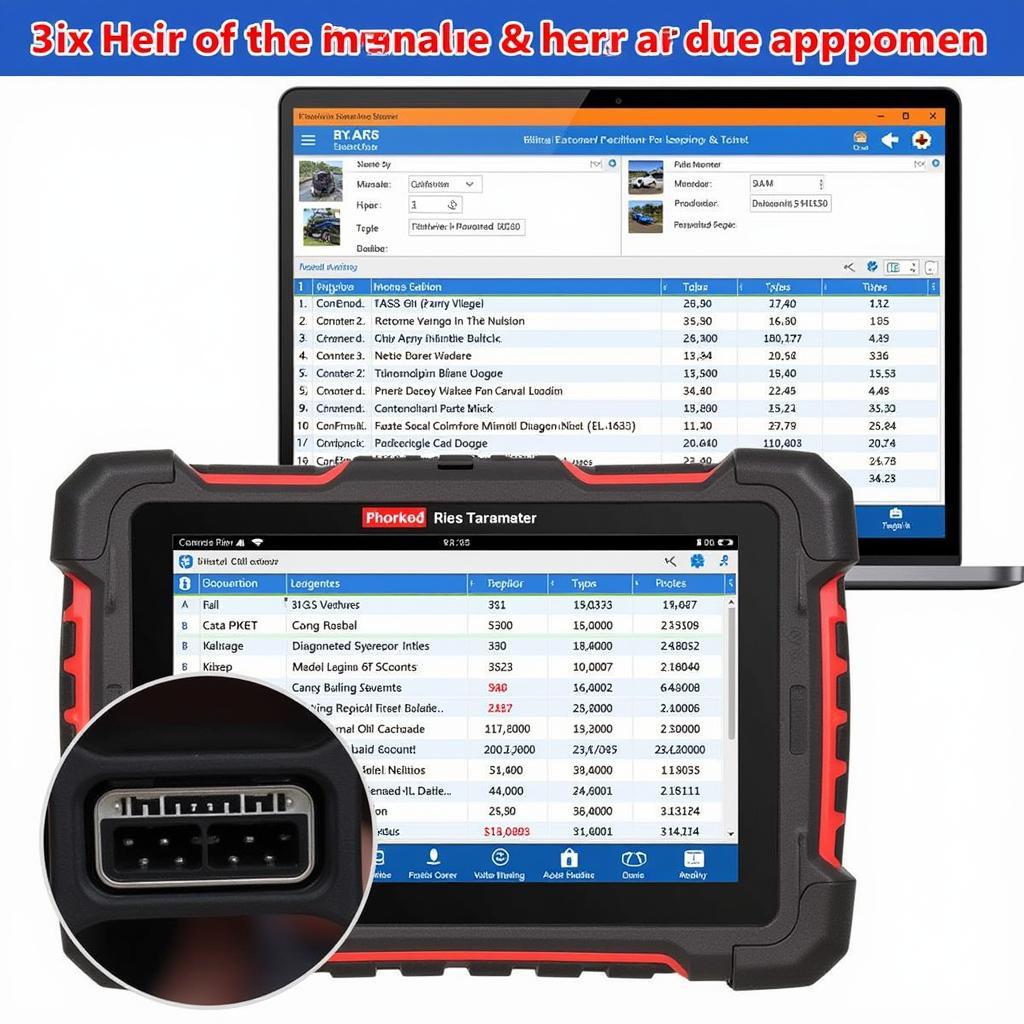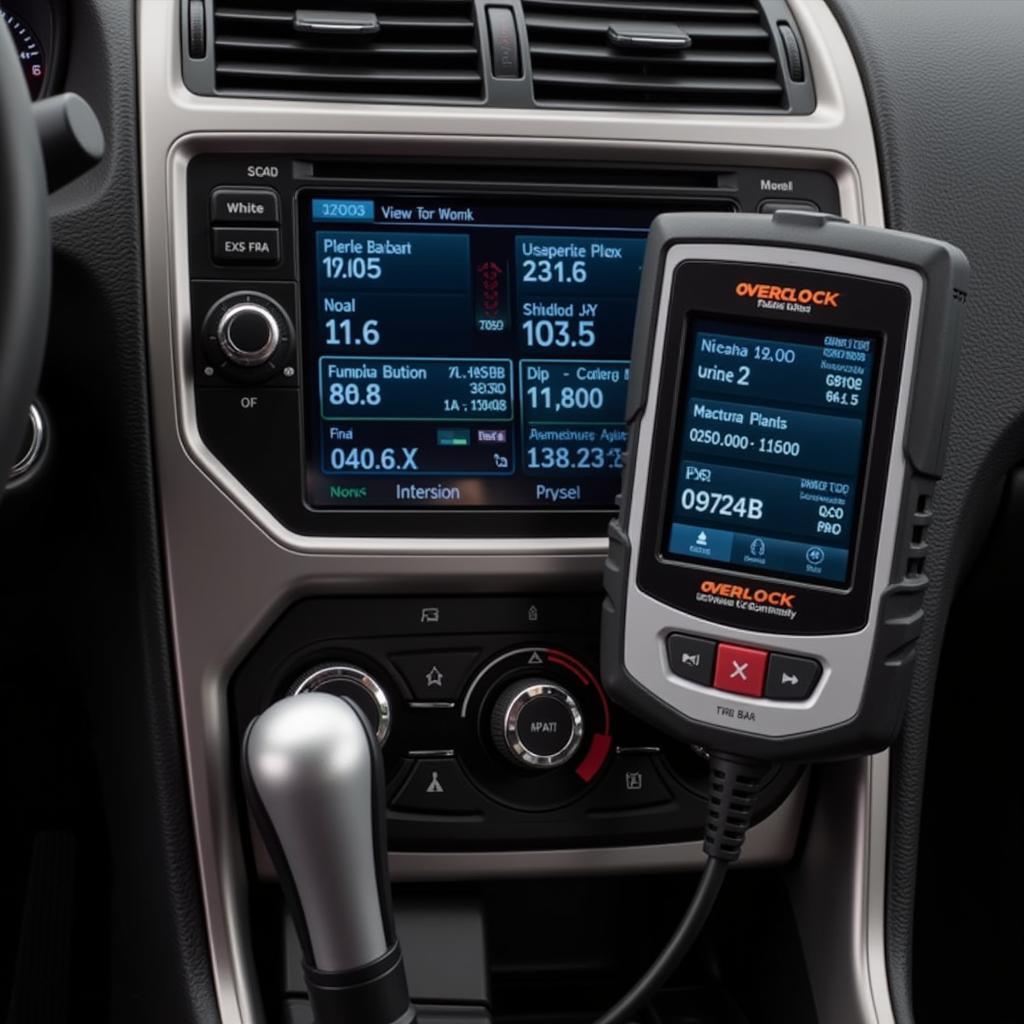Automotive Scanning Tools are no longer exclusive to professional mechanics. As car technology evolves, understanding how to use these tools is becoming increasingly important for car owners and DIY enthusiasts alike. Whether you’re troubleshooting a check engine light or seeking deeper insights into your vehicle’s performance, this comprehensive guide will equip you with the knowledge you need to navigate the world of automotive scanning tools.
What are Automotive Scanning Tools?
An automotive scanning tool, also known as a car diagnostic scanner or OBD2 scanner, is a device that connects to your car’s onboard computer system – the Engine Control Unit (ECU). This connection allows you to read and interpret Diagnostic Trouble Codes (DTCs) stored in the ECU. These codes are like clues that reveal potential problems with your vehicle’s engine, transmission, emissions system, and other critical components.
Why are Automotive Scanning Tools Important?
In the past, diagnosing car problems was a time-consuming and often expensive process. Mechanics relied on experience and intuition, often leading to trial-and-error approaches. With the introduction of data scanning tools, car diagnostics have been revolutionized. Here’s why these tools are indispensable:
- Accurate Diagnosis: Automotive scanning tools provide accurate and timely identification of car problems, eliminating guesswork and unnecessary repairs.
- Cost Savings: By pinpointing the source of the issue, you can avoid unnecessary repairs and potentially save hundreds, even thousands of dollars in the long run.
- Preventative Maintenance: Regularly scanning your car can help identify minor issues before they escalate into major (and costly) problems.
- Improved Vehicle Performance: By monitoring various engine parameters, you can optimize your car’s performance and fuel efficiency.
- Empowerment for Car Owners: Owning an automotive scanning tool empowers you to take control of your car’s health and make informed decisions about repairs and maintenance.
Types of Automotive Scanning Tools
Automotive scanning tools come in a wide range of functionalities and price points. Here are some common types:
1. Basic Code Readers:
As the name suggests, basic code readers are entry-level tools primarily designed to read and clear DTCs. They are generally affordable and suitable for car owners who want to understand the reason behind a check engine light.
2. OBD2 Scanners:
OBD2 scanners offer more advanced features compared to basic code readers. They can access live data streams from the ECU, providing real-time insights into various engine parameters such as RPM, speed, coolant temperature, and more.
3. Professional-Grade Scan Tools:
Professional-grade scan tools, as used by mechanics and dealerships, offer the most comprehensive functionalities. They can perform advanced diagnostics, bi-directional control of vehicle systems, programming, and coding of new modules.
 Mechanic Using Professional Scan Tool on a Car
Mechanic Using Professional Scan Tool on a Car
How to Choose the Right Automotive Scanning Tool
Choosing the right automotive scanning tool depends on your needs, budget, and technical expertise. Consider these factors:
- Frequency of Use: If you anticipate infrequent use, a basic code reader or an OBD2 scanner might suffice. For regular diagnostics and maintenance, investing in a more advanced tool is worthwhile.
- Vehicle Compatibility: Ensure the scanner you choose is compatible with your car’s make, model, and year. Some scanners are specialized for certain vehicle brands.
- Features: Determine the features you require. Live data streaming, graphing capabilities, and the ability to perform special functions are some factors to consider.
- User Friendliness: Look for a scanner with an intuitive interface, clear display, and easy-to-understand menus.
- Budget: Set a realistic budget and choose a tool that offers the best value for your money.
“Remember,” says John Smith, a seasoned automotive engineer at Ford, “investing in a quality automotive scanning tool is an investment in your car’s longevity. It’s like having a window into your vehicle’s health.”
Key Features to Look for in an Automotive Scanning Tool
While specific features vary depending on the type and model, here are some essential features to prioritize:
- Code Reading and Clearing: The ability to read and clear DTCs is the fundamental function of any automotive scanning tool.
- Live Data Streaming: Access to live data parameters lets you monitor engine performance, transmission behavior, and other crucial systems in real-time.
- Graphing Capability: Some scanners offer graphing features, allowing you to visualize data trends and identify intermittent problems more easily.
- Special Functions: More advanced tools may include special functions such as ABS bleeding, resetting service lights, and performing DPF regeneration.
- Software Updates: Ensure the scanner you choose offers regular software updates to stay compatible with newer vehicle models and evolving diagnostic protocols.
 Screen Displaying Data from Automotive Scanning Tool
Screen Displaying Data from Automotive Scanning Tool
The Future of Automotive Scanning Tools
With the rise of electric vehicles (EVs) and advancements in vehicle connectivity, automotive scanning tools are poised for further evolution. We can expect to see:
- Increased Integration: Integration with smartphone apps, cloud-based platforms, and augmented reality (AR) for enhanced diagnostics.
- Predictive Maintenance: AI-powered diagnostics that can predict potential problems before they occur, enabling proactive maintenance.
- Remote Diagnostics: Remote access to vehicle data for mechanics and service centers, allowing for quicker diagnosis and repair recommendations.
Conclusion
Automotive scanning tools have become essential for modern car ownership, empowering car owners and mechanics with the ability to diagnose and troubleshoot problems accurately and efficiently. From basic code readers to professional-grade scanners, there is a tool available for every need and budget.
By understanding the different types of automotive scanning tools, their features, and how to choose the right one, you can take control of your car’s health, save money on repairs, and ensure optimal vehicle performance.
Need expert advice or assistance in choosing the perfect automotive scanning tool for your needs? Contact ScanToolUS today at +1 (641) 206-8880 or visit our office at 1615 S Laramie Ave, Cicero, IL 60804, USA.
FAQs
1. Can I use an automotive scanning tool on any car?
While most modern cars use the OBD2 standard, ensuring compatibility with your specific car make, model, and year is crucial.
2. Do I need a professional mechanic to use an automotive scanning tool?
Many automotive scanning tools are user-friendly and designed for DIY enthusiasts. However, for advanced diagnostics and complex repairs, seeking professional help is recommended.
3. How often should I scan my car?
It’s generally recommended to scan your car at least once a year or when the check engine light illuminates.
4. What should I do after reading a Diagnostic Trouble Code (DTC)?
Research the specific code online or consult a repair manual to understand the potential problem. If unsure, it’s always best to seek professional advice.
5. Can an automotive scanning tool fix car problems?
Automotive scanning tools primarily diagnose problems. While some offer functionalities like resetting service lights, they do not inherently fix mechanical or electrical issues.
6. Are awzap scanning tools the same as automotive scanning tools?
AWAP scanning tools are a type of security scanner, not specifically designed for automotive diagnostics.
7. What are configuration scanning tools?
Configuration scanning tools are used in IT to identify and manage devices on a network. These are not related to automotive diagnostics.
8. Are Xerox scanning tools used for car diagnostics?
Xerox scanning tools are primarily used for document scanning and are not related to automotive diagnostics.



Pingback: Unveiling the Power of Software Scanning Tools: Your Key to Accurate Car Diagnostics - Car Scan Tool
Pingback: Evolve Scan Tool: The Mechanic's Secret Weapon for Modern Car Repair - Car Scan Tool